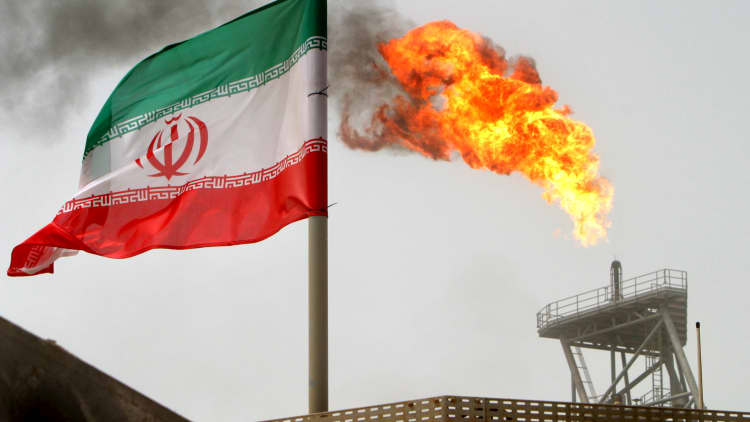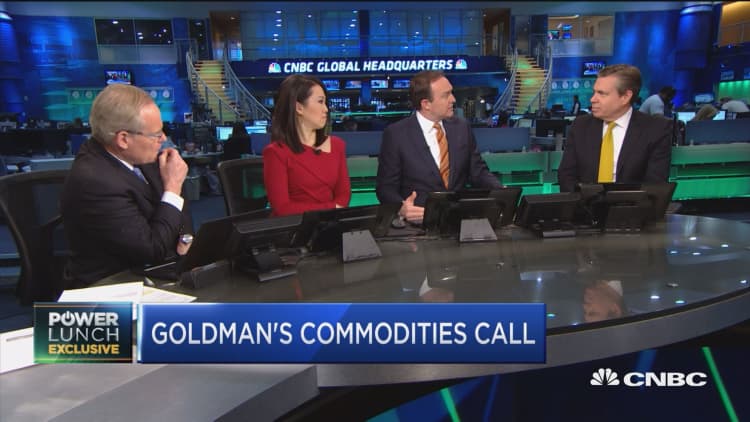
A black swan could be surfacing in the oil markets.
Oil prices sharply extended gains on Wednesday after U.S. National Security Advisor Michael Flynn said the White House is putting Iran "on notice." That raised concerns President Donald Trump could take actions that would hobble Iran's efforts to revive its oil and gas industry, spark conflicts along oil supply routes and ultimately drive crude prices higher.
"As soon as those comments hit the wires, you saw a bit of a rally in crude oil," said John Kilduff, founding partner at energy hedge fund Again Capital.
Flynn said the warning is a response to Iran carrying out a ballistic missile test this week and its support for Houthi rebels in Yemen's civil war. During a White House press briefing, he called agreements struck by the Obama administration, the United Nations and Iran "weak and ineffective."
"Instead of being thankful to the United States for these agreements, Iran is now feeling emboldened. As of today, we are officially putting Iran on notice," he said.
Under a deal reached between Iran and six world powers, Tehran accepted limits on its nuclear program in exchange for sanctions relief. Iran has conducted several ballistic missile tests since the nuclear deal went into effect, but the latest is the first since Americans elected a president who has threatened to pull out of the accord.
Last month, Barclays included the risk that "Iran/US rhetoric escalates and leads to more Iranian ballistic missile testing" as one of 13 possible black swan events for markets in 2017. In a research note, Barclays said there is "significant legislative support" for keeping the nuclear deal in place, but warned that geopolitical tension may dampen investment in Iran's energy industry.
"We do not believe that the reimposition of sanctions would lead to an abrupt cut in Iranian exports, but the threat of new US sanctions will likely slow the pace of investment needed for Iran's oil sector to mitigate the decline from existing oil fields," Barclays said.
European oil majors have already laid the groundwork to return to Iran.
Heightened tension may have a short-term impact on prices due to the threat of confrontations in the Strait of Hormuz, a key oil supply route in the Persian Gulf where Iran's Revolutionary Guards and U.S. warships have clashed, Barclays said.
Persian Gulf and Strait of Hormuz
Tensions are already high. Iranian leaders accused the United States of violating the nuclear deal after President Barack Obama allowed Congress to extend unilateral sanctions on Iran. Those sanctions relate to different issues than those the nuclear accord addressed.
Kilduff said Flynn's comments made traders nervous because the market is uncertain how far the Trump administration is willing to go.
The missile test "is much more of a provocation to the Trump administration than it was to the previous one. The fact that Flynn made his appearance in the briefing room added to the gravity of the situation," Kilduff added.
Lipow Oil Associates President Andy Lipow noted that oil prices had already been moving higher on signs that OPEC and Russia are delivering promised output cuts. But Flynn's comments only add to bullish oil price sentiment, he said.
"If the administration makes more and more statements that the Iranians consider to be provocative, the situation might turn into renewed sanctions on Iran or Iran acting in a manner that impacts the oil market in other ways," he said.
Iran is not expressly prohibited from testing ballistic missiles. However, a United Nations resolution passed when the organization implemented the nuclear deal "calls upon Iran not to undertake any activity related to ballistic missiles designed to be capable of delivering nuclear weapons, including launches using such ballistic missile technology."



